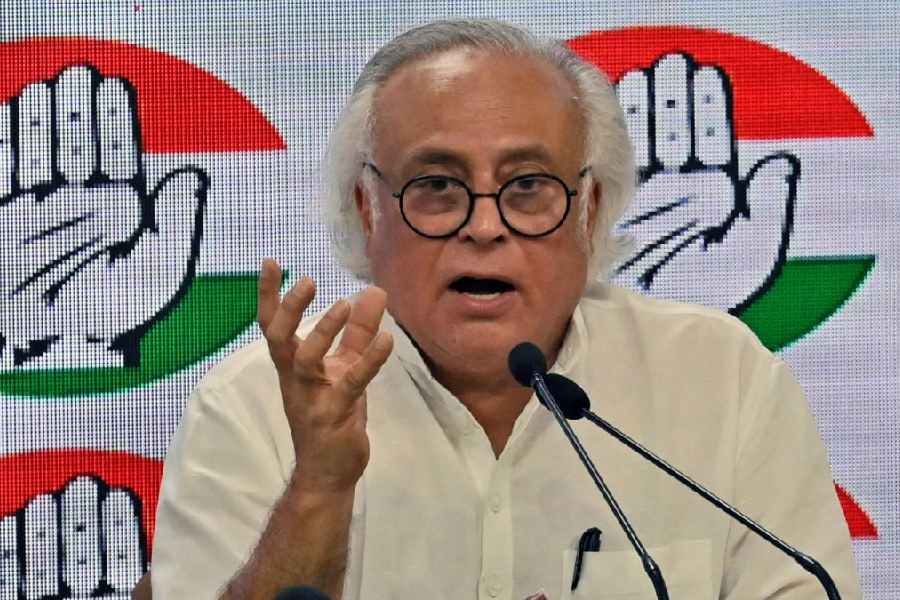The Congress on Tuesday questioned the locus standi of the RSS to call the shots on a caste census, reacting to the Sangh Parivar fountainhead’s “didactic talk” on the contentious issue.
“Does the RSS have veto power on a caste census? Who is the RSS to give permission for a caste census?” asked Congress communications in-charge Jairam Ramesh.
Ramesh was reacting to RSS publicity in-charge Sunil Ambekar stating that the government needs the numbers that a caste census will provide to be able to make policy while cautioning that “it should not be used as a political tool for elections”.
The RSS’s hold over the BJP and its government is something the Congress has always questioned; not just because the Sangh calls itself a cultural organisation that is apolitical but also because it provides the Grand Old Party a way of getting back at the saffron brigade for repeatedly criticising the Manmohan Singh government of being remote-controlled by 10 Janpath, the long-time residence of Sonia Gandhi.
In a post on X, Ramesh said: “The RSS’s didactic talk on caste census raises some fundamental questions: 1. Does RSS have veto power on caste census? 2. Who is the RSS to give permission for caste census? 3. What does the RSS mean when it says caste census should not be misused for election campaigning? Is it to be a judge or an umpire?"
On Monday, Ambekar — while responding to media queries on discussions on a caste census at the three-day coordination meeting of various Sangh-affiliated outfits, including the BJP, in Kerala — said: “It is a very sensitive issue. We are concerned about unity and integrity in the society.”
Stating that the Sangh favoured the conduct of a caste census for welfare activities to help the government give special attention to disadvantaged sections, Ambekar added: “It is an important issue for our national unity and integrity. So it should be dealt with very seriously and not only for electioneering and politics…. For special attention to certain groups lagging behind, sometimes the government needs the numbers and we have no problem with it. But it should be for welfare only,” he added.
For many in the Opposition, particularly leader of the Opposition Rahul Gandhi, the caste census is a stepping stone to ensuring proportionate access to resources for the empowerment of the historically marginalised sections and not just a welfare mechanism.
Ramesh also questioned the Sangh’s “mysterious silence” on the need for a constitutional amendment to remove the 50 per cent cap on reservations for Dalits, Adivasis and OBCs. The Congress manifesto for the 2024 Lok Sabha elections said it "will pass a constitutional amendment to raise the 50 per cent cap on reservations for SC, ST and OBC” in keeping with Rahul’s call for proportionate access to resources in relation to the population.
Ramesh asked: “Now that the RSS has given the green signal, will the non-biological Prime Minister hijack another guarantee of the Congress and conduct a caste census?” He was referring to the fact that the government borrowed three promises made by the Congress in its manifesto and announced them in this year’s budget — an internship scheme, employment-linked incentive, and abolition of the angel tax.










